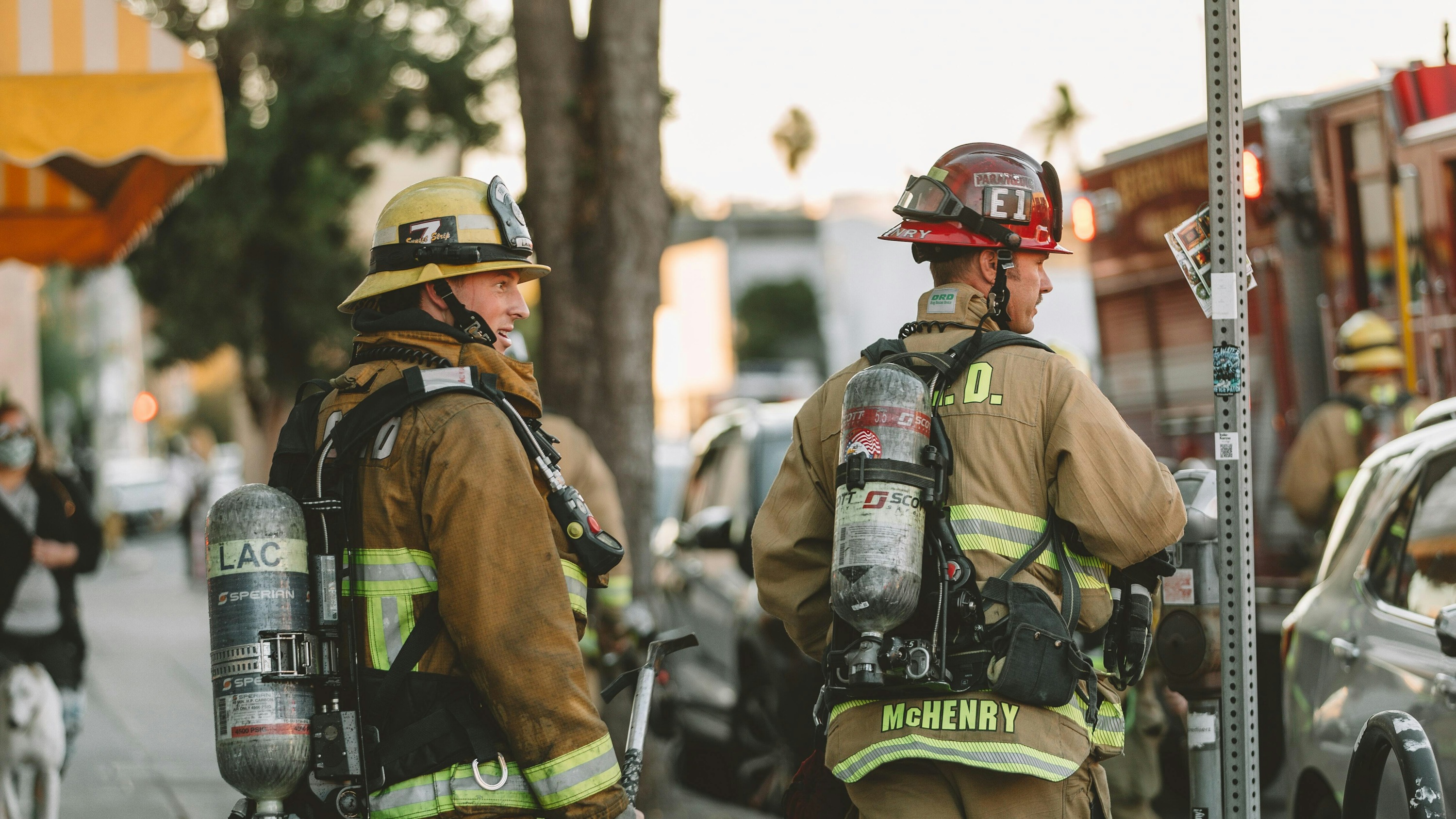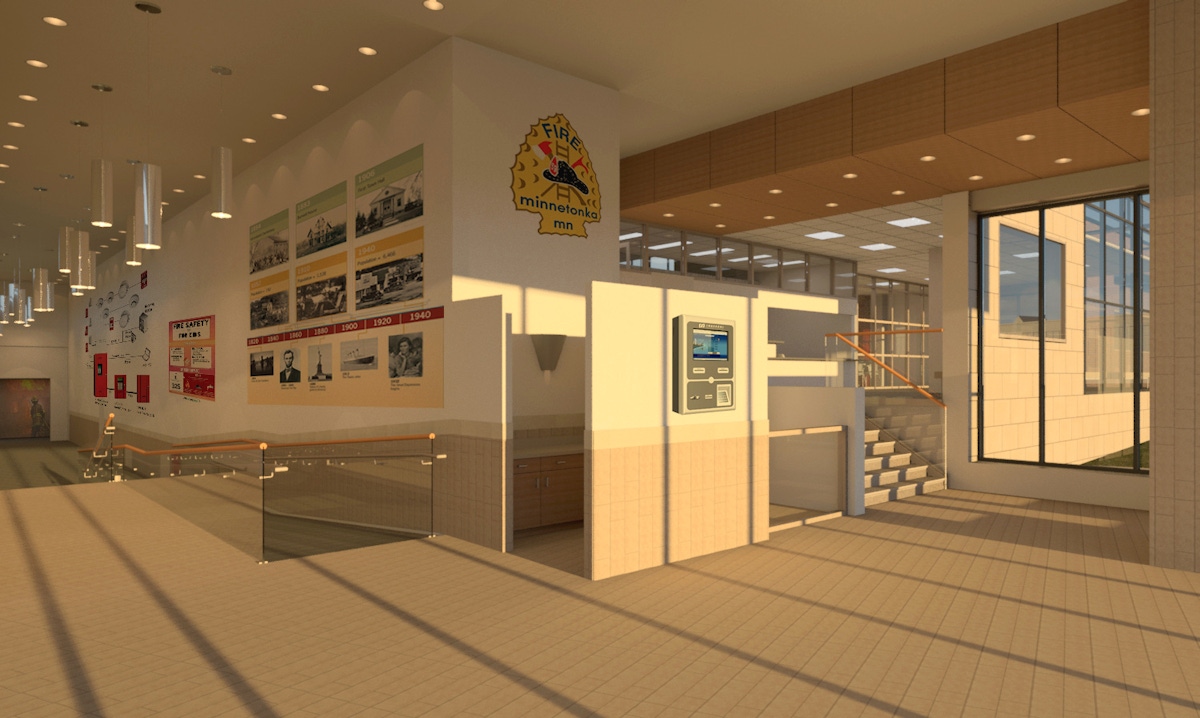
Coinciding with nationwide discussions, the conversation surrounding firefighter mental health is also growing in prevalence. According to a study conducted by the Ruderman Family Foundation, firefighters in the U.S. are more likely to die by suicide than an on-duty death. Started in 2017, the study recorded 103 firefighters died by suicide compared to 93 firefighters who died in the line of duty. Other studies have similarly tracked a continuation of this trend each year since. As a firm, Wold is committed to working with our fire service clients to identify and implement design considerations intended for countering and combating the effects of depression, anxiety, post-traumatic stress disorder (PTSD), sleep disorders, substance abuse, suicidal ideation/action and other mental illnesses in fire departments. Below, we’ve provided several examples of strategies which prioritize all first responders mental health along with several lessons from our clients to their efforts to promote mental health in their departments.
As stated before, the stress associated with the duties of a firefighter can have a severe impact on one's mental health. Often put in high-stake environments, firefighters commonly see increased risks of anxiety, PTSD and other stress-related illnesses. To address these concerns, fire stations should provide normative environments to allow firefighters an opportunity to relax in a setting that is more like being at home. As an example, it is important that the design of the station encourages social interactions and communal dining by making room to host family and friends. Similarly, fire departments should be intentional in separating normative environments within their facilities from the location of apparatus bays. While this is central to mitigating the spread of contaminants, it also helps lower stressors associated with the responsibilities and demands of the job.

Research continues to illuminate the importance of healthy sleep as a contributor to one’s mental state. In response, current best practices include state-of-the-art station alerting systems designed to only wake the team that needs to respond to an emergency. Modern alerting systems will ramp up the lights and sound slowly, so as to not jolt officers awake, and allows firefighters to prepare for responding without enduring the negative impacts of an adrenaline boost caused by a loud noise or bright light. Proper lighting for stations is often in the form of tunable white lighting. Tunable white lighting allows users to adjust the color temperature of light in real-time. For firefighters, this allows for a less sudden transition of light as they wake up and move to an apparatus bay with brighter lights.
Creating an environment that emphasizes healthy habits is also a commonality seen in new station design. To enhance one's well-being, new stations feature areas dedicated to improving firefighters' overall health. This includes workout spaces, multi-purpose rooms that firefighters can use for meditation and yoga, and flexible enough for large gatherings. We also see an increase in water fountains, many with bottle filling attachments, to promote hydration. These spaces should have a distinct separation from apparatus bays where they would be exposed to harsh toxins. These design solutions offer several unique solutions to mitigate stress and improve the wellness of your team.


"Our first responders experience a lot of traumatizing events and having a range of calm and quiet spaces throughout the station allows for us to offer the appropriate emotional or social support immediately after a traumatic incident whether that be a private room for meeting with a counselor or a larger room to decompress as a team with peer support. Additionally, combating sleep deprivation is extremely important to the mental health and wellbeing of our firefighters. A good station alerting system along with a quiet, comfortable room where you can set your own environment (temperature and lighting) allows for our crew to experience a more restful night of sleep." - Chief John Vance, Minnetonka Fire Department
While it is essential to focus on the safety of firefighters on calls, Wold understands that it is equally essential to focus on addressing mental health wellness. As a firm, we are committed to engaging our clients in conversation related to how station design can aid in improving the mental health and well-being of firefighters. If you’d like to learn more about behavioral health awareness amongst fire departments, we encourage you to view the resources below. Additionally, if you have any questions about our design process related to promoting positive firefighter mental health, please feel free to reach out to our team at Wold Architects and Engineers (call 1-888-254-6789 or email info@woldae.com).